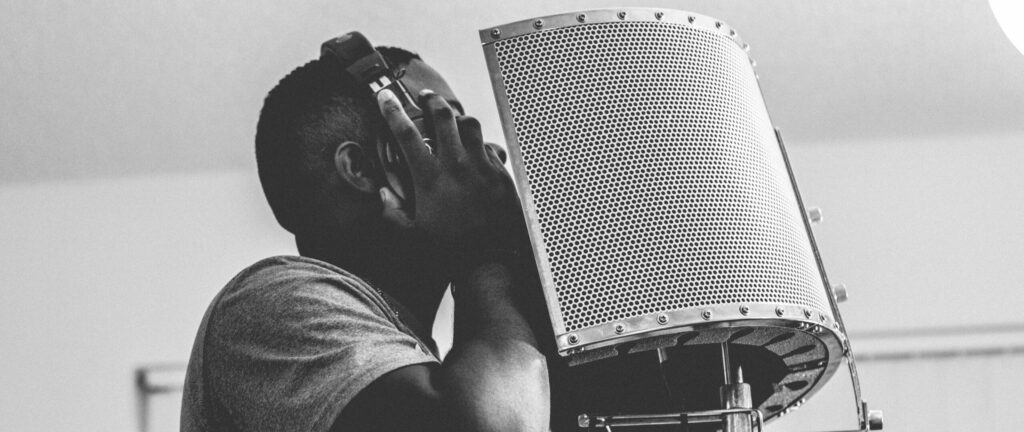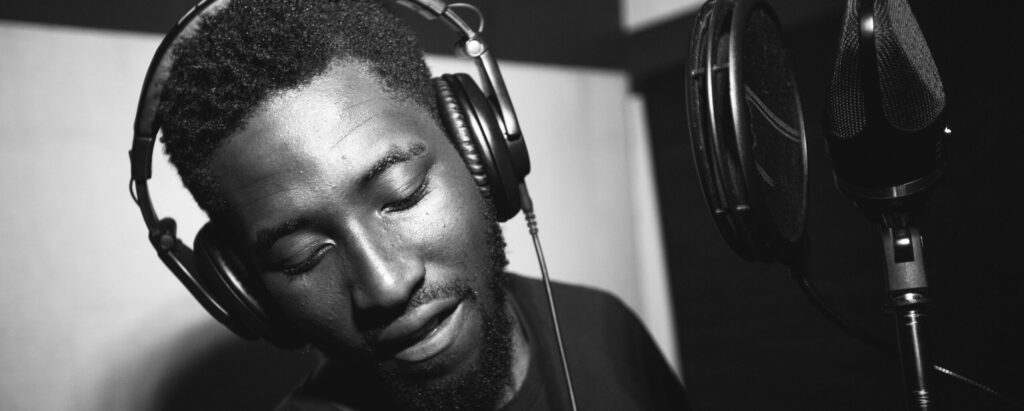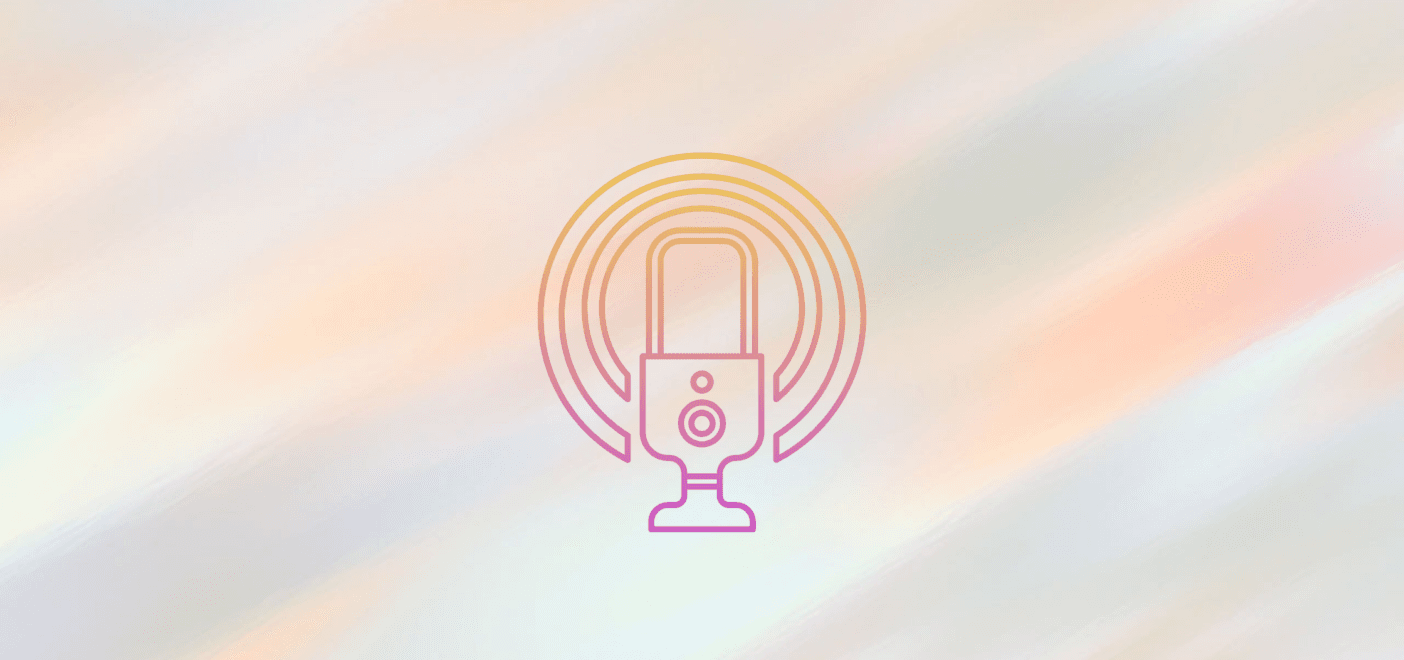Many of you reading this have inevitably done some form of vocal recording before. It’s normally a gateway for many people to enter the music tech industry due to the limited amount of resources required. However, as you may be starting to learn, there are quite a few different ways to approach even the simplest of processes. When you attempt to record rap vocals, you’re probably going to find that most of the techniques and concepts you’ve already learned go out the window. Let’s dive into some of the key considerations to keep in mind when recording rap vocals.
Dealing with Fast Flows and Tricky Sentences
When you’re working with singers, you tend to find that they focus on enunciation and melody. The key is to ensure you can hear and understand every word and that there is plenty of time and space for the listener to process what is being said. With rappers, this is often the opposite. Fast flow, complex rhyming patterns, and intricate rhythmic structures are all symptoms of a common inability among new rappers to fully perform, start to finish, what they have written.

This is where comping will save your life. So, what is comping? The art of comping involves taking multiple recordings of the same phrase in a song and editing sections from each together, creating one seamless and perfected performance. Let’s say you’ve got a particularly fast and complicated eight-bar section to record. You’ve tracked it twenty times, and the rapper is just not hitting it perfectly all the way through. However, on take six, he nailed the first four bars, and on take nine, he nailed the last four bars. Grab your magic slicing tool and get to work!
While I always tend to advocate the approach of ‘getting it right in one take’, sometimes it’s just not going to happen. When you’ve got paying clients or deadlines to meet, save yourself some hassle and comp. If you do a good job, nobody will be able to tell.
Microphone Choices When You Record Rap
As a rule, when it comes to the best microphone for vocals we tend to gravitate towards our reliable condenser microphones. Rode NT1-A, Neumann U87, and so on. They offer us character, colour and sensitivity that you just won’t get from a dynamic microphone. However, if we’re going to record rap vocals, do we really want sensitivity?
Many rappers tend to be very expressive with their performances. Energy is one of the key elements conveyed in rap, so we need to consider equipment that can handle harsh transients and dynamic aggression. Enter dynamic microphones. While you’re probably not going to want to record rap vocals with an SM58 (otherwise known as the trusty old doorstop), it has the potential to capture a more raw performance than a delicate condenser microphone might.
If you’re looking for some more useful examples of dynamic microphones, I recommend checking out the RE20 or the SM7B. Both offer much higher quality and capture a very full-bodied sound.
This isn’t to say that condensers won’t work when you want to record rap vocals. Not every MC is going to give you that full-on performance, and sometimes you’ll need to capture a more delicate act. The best plan is to see how people perform in pre-production and make an informed decision on the microphone type you’ll need to use.
Some Basic Tips for Processing Rap Vocals
The basic steps for processing any form of vocal recording tend to be the same: correct mic choice, choosing the right pre-amp, EQ, compression, and de-essing. To make your life a little easier, here are some general suggestions for when you record rap vocals.
In terms of pre-amp choice, tube amps are generally the best option. Rap performances tend to exhibit aggression, so a strong, driving tube amp will introduce warmth and some subtle saturation to elevate the sound.
Your EQ approach won’t change much from normal vocal recordings. Filter out your unwanted low and high frequencies, and then use subtractive EQ where needed. The thing to remember here is that most rappers aren’t utilizing melody, so there is likely to be more mid-range to address than usual.
Vocal compression is typically going to be more dominant than normal. I find that VCA style compression, with a ratio of around 6:1, will be fast and strong enough to tame rap vocals. Not only this, but we can introduce a little more aggression to the performance by slightly exaggerating the compression. Don’t be afraid to duck 5-6 dB here.
De-essing is also going to be a bit stronger than usual. Faster flows with unusual word choices mean that there is less time to focus on minimizing sibilance in the performance. I won’t make any specific suggestions here, but just be aware that it’s something you will need to address.

TL;DR
When you record rap vocals, there is generally a little more to consider than with singers. However, as long as you make informed decisions in pre-production, you should be just fine. Experiment with dynamic microphones and don’t be afraid to go a little overboard with things like gain staging and compression.
If you enjoyed this article, you should also check out Producing Beats for Rappers for further tips!
Informazioni sull'autore

Tim Dunphy
Ingegnere audio e scrittore di contenuti specializzatiOltre 10 anni di esperienza nel settore audio. Tutto, dall'avvolgimento degli XLR alla masterizzazione degli album. Sono un uomo che si è fatto da solo e conservo i miei beni in Bitcoin. Cos'altro c'è da sapere?
Lascia un commento
Log in per commentare


